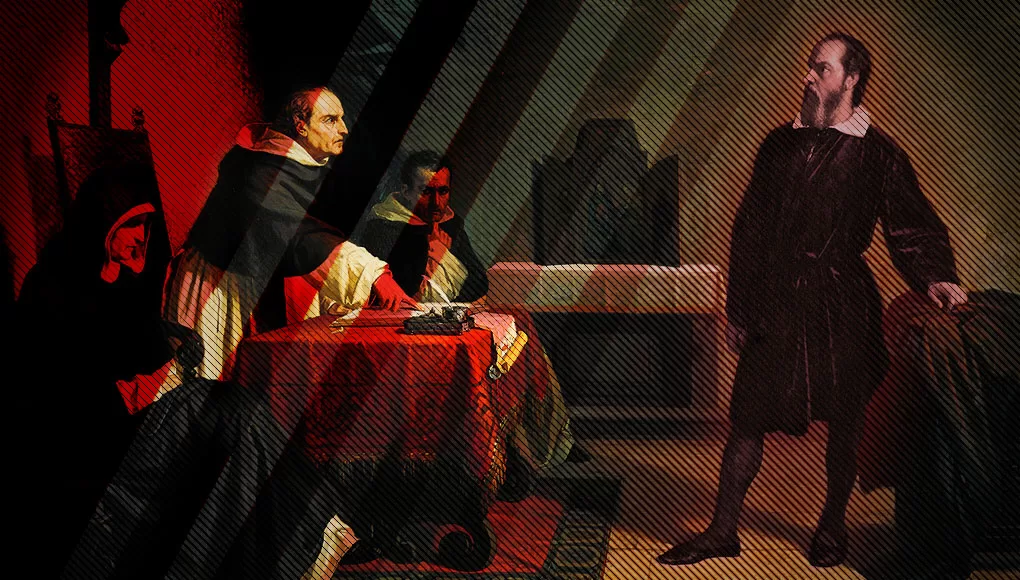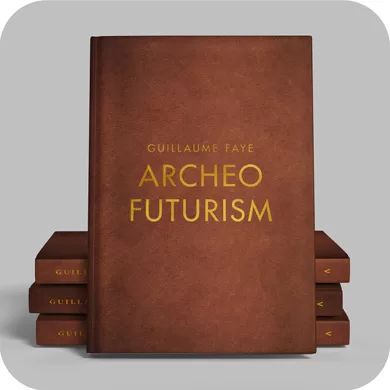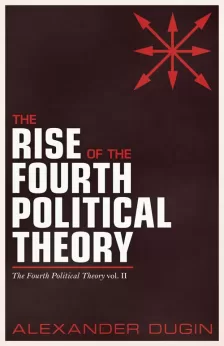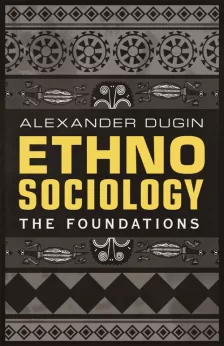Discourse
In order to address the questions with which we left off, we turn to Descartes’ apparently autobiographical Discourse, in which he explains not only his method but his motivation for developing it, and which therefore proves a wider passage to enter them than the Meditations.
The first curiosity regarding this work is its anonymous publication. We have seen how his private explanation for this fact (that he wanted, like the painter of a picture, to stand behind his work and listen to what was said about it) does not altogether satisfy. We recall as well that Descartes elected not to publish his magnum opus, The World, at all during his lifetime for fear of the consequences. We are compelled to ask why he did not wish his Discourse published under his own name, and if the reasons for this choice might have been parallel to those which led him to suppress his World.
Given all we have noted about Descartes and his method, he might well have feared reprisal for his impiety in the publication of this work. The Discourse was indeed published after Descartes decided not to publish the World, and he might have been testing the waters to see how his ideas would be received. His very similar Meditations was published subsequently, with his name affixed, and did not result in any great scandal, which suggests that in the time intervening he might have decided that the coast was clear. Indeed, it would not appear that the Discourse was much more obviously heterodox, and the defensive proofs of God upon which Descartes puts so much false weight are of course reprised therein. To be sure, the Discourse, as against the Meditations, does not open with a hypocritical display of piety; but if this were the only obstacle to his acknowledgement of his authorship, he could easily have provided as much.
Yet the fact remains that Descartes did not at this point elect to reveal his identity as the author of the Discourse. Had this text been but a canary in the mineshaft, surely when the bird refused to die, Descartes would have felt it safe to make his presence known? And, as the other half of the same riddle, why did he see it necessary to publish his Meditations at all?
The Discourse has several major differences to the Meditations, foremost being that it was not originally a stand-alone work, but was published as the introduction to a series of scientific writings. Its full title is highly revealing: Discourse on the Method of Rightly Conducting One’s Reason and of Seeking Truth in the Sciences. This Discourse was followed by the texts Dioptrique, Météores and Géométrie which treated of optics, meteorology and mathematics respectively, and which claimed to apply his method to these various fields of scientific inquiry. Conspicuously lacking here is cosmology or astronomy, both of which make central appearances in The World. Indeed, their presence in that work was one of the major reasons for Descartes’ choice not to publish it during his lifetime. It was known that the astronomical question ran afoul of the Church’s teachings; this had been infamously demonstrated in its judgements on Giordano Bruno and Galileo Galilei, which led to the execution of the one and the imprisonment of the other. Descartes’ reticence to apply his method to astronomy or cosmology was a question of self-preservation; the conclusions that he reached through the use of his method were contrary the Church’s, and the Church had already shown itself willing and able to suppress all works to that effect. It would seem therefore that Descartes would sufficiently protect himself from accusations of heresy by avoiding that terrain which had become the landscape of the great battle of Modernity – the astronomical battleground between Christian Faith and Modern Science.
Considering Descartes’ great sensitivity to this question and his enormous fear of reprisals, two thoughts would surely have given him pause, however. The first is that modern natural science, of which he was one of the groundbreaking explorers, gave indications of being a unified whole, whose parts necessarily led clearly and inescapably one to the next. This was an essential piece of the great power of that science: it seemed to have the potential of explaining the entire world with a minimal mathematical apparatus.1 Where pre-modern natural science, which is almost identical to saying Aristotelian or Thomistic science, had required a complicated causal and explanatory accoutrements to understand the world, it appeared that modern science could do so with unprecedented efficiency and simplicity.
We forget that this was one of the major points of superiority perceived in the Copernican over the Ptolemaic system – namely, that it was seemingly able to eliminate the irregular movements of the wandering planets. Copernican theory owed its persuasiveness to its presumed simplification and thus perfection of the previous system. Even Kepler’s modification of this scheme, which (most controversially) replaced circular motion with elliptical, had the advantage of obviating the need for the weird Ptolemaic equant. This produced the necessary underpinning for Newtonian physics, which reigned undisputed practically until Einstein. All of these innovations were regarded as being technically superior to the past because they provided the possibility of perfecting astronomy through astronomy’s mathematical simplification. Were it not for this early simplification, the moral question of the motion of the heavens and the hierarchical order of the cosmos – the question which truly motivated the Church’s persecutions – would easily have sufficed to suppress the heretical new doctrine.
Modern science was built therefore on two mistakes: first, the idea that past thinkers had failed to appreciate mathematical possibilities which modern thinkers perceived for the first time (it is far more likely that Ptolemy, in his equivalent clarity of vision and his superior moral attitude, maintained his circular and geocentric model on account of its social and political implications); second, the view that modern thinkers had succeeded in producing a purer and clearer model than any past model (which has been utterly debunked by the advent of the wild, obscure and super-intricate theories of late scientific development).
Descartes laboured full beneath these errors. He perceived in the new science the possibility of producing a final explanation for the world (note again the full title of his Discourses and its referral to ‘Truth in the Sciences’) in the most elegantly simple form possible.2 This indicates the absolute interconnection of the sciences, the impossibility of separating them; to produce mathematical certainty in one quarter would therefore imply conclusions in every other. Descartes could not present a fragment of mathematico-scientific knowledge, say in optics or meteorology, without suggesting his adherence to the dangerous mathematical innovations in astronomy that the Church was attempting to rein in with so iron a hand. Hence he had recourse to secrecy to protect himself from this necessary inference from his work.
This is closely connected to the second reason he surely would have hesitated before putting his name beneath the Discourse: while the Church had not yet persecuted any of the new sciences but the astronomical, especially given the evident integral nature of all the new natural sciences, it would surely be only a matter of time before it moved against those novelties as well. Descartes was indeed hiding himself, and was moreover truly doing so to ‘see what would be said’ about his canvas: but this was not, as the metaphor implies, so as to gain new perspective on his work; it was to ascertain how dangerous the situation would be for any man openly embracing the new science, and whether the authorities would decide it worthwhile to censor the pudenda he had so boldly painted on his canvas.
The way he proceeded following the publication of the Discourse is enlightening as to what he discovered from his hiding place. The Discourse was followed by the Meditations, which presented his method methodologically, as it were, and without providing any of the concrete mathematical or scientific conclusions to flow therefrom. This in turn was followed by his Principles of Philosophy, which he had originally intended to call the Summation of Philosophy (Summa Philosophiae). As a measure of his self-confidence, not to say arrogance, he hoped that this last work would supplant the Aristotelian textbooks of his time.3 The Principles salvaged key material from The World, while leaving other portions aside. It is almost certain that this was done, not with an eye toward clarifying the material of The World, but rather toward occulting that portion of it which might lead to trouble with the Church. Thereafter followed a number of minor works, none of which touched upon the question of cosmology. The World was published posthumously, first in portion (De Homine or On Man in 1662), and what remained of it in 1664; and lest anyone doubt the legitimacy or validity of Descartes’ circumspection, let it be noted that it was only upon the publication of this material that the Pope saw fit to interdict all of Descartes’ works by placing them on the Index, which can be taken as an index indeed of what Descartes himself might have faced, had he been more candid in his writings.
An overview of this chronology will teach us much about Descartes’ true method. He saw with acute clarity that it was impossible to stand forth and deliver on the new sciences; the world, as he perceived it, was not ready to receive them, and the major foe and obstacle to their advent was as ever the Catholic Church. That Church had to be undermined (this was, as we have seen, the work of the Meditations), and the ground generally prepared for the open reception of modern science; hence his almost obsessive focus on method, on ‘metaphysical’ questions rather than on natural scientific questions, and his continual work in geometry and algebra, or ‘pure mathematics’, which was the one still safe haven for the development of certain foundations for science. This is why he penned his Meditations, why he sent them to the Sorbonne, why he sought the theological authority of the Schools to support his endeavors and why he had recourse in that work to such patently flimsy expressions of piety. Descartes retracted from the study of science and dedicated himself to work on the social and metapolitical underpinnings of science; without this work on his part, modern science would never have emerged in Europe. Or at the least, it would have done so far later.
Descartes’ name has come down to us as that of a philosopher; it would be better to consider him a scientist, but a scientist who had run clean up against the problem of the Enlightenment, which we have identified in the first part of this essay, and which we can now proclaim is identical to the problem of modern science itself. Science, if its method is to function, requires a number of preconditions which were far from being met at the time of the emergence of the first scientists. Science requires in the first place ‘freedom’ for the pursuit of its research; put more correctly, it requires the guarantee that no boundaries will be placed around the use of its method, and no restrictions around the conclusions at which it arrives therethrough. But that research and those conclusions are bound to conflict at any number of points with the received wisdom, as embodied in custom, academy and religion. In Descartes’ time, the major points of friction were with the popular view of the world (particularly as this was reflected in law), the intellectual tradition of his time (Scholasticism, founded on Aristotelianism), and above all the Church, upon which these other two traditions, in their practical aspect, decisively depended (though they themselves were often unaware of the fact at the time). The last two in particular, philosophy and religion, had in Descartes’ day been conflated into a single form: through Thomas Aquinas, philosophy had been made pious. The extraordinary and unprecedented result of this development, which in turn almost alone produced the militantly secular character of Modernity, was that, following Aquinas, the Aristotelian basis of pre-modern natural science could not be disputed without striking against the authority of the Church.
We must appreciate the novelty of Descartes’ situation – indeed, the novelty of the situation for all the early modern scientists and scientific philosophers – if we are to comprehend the origins of the Enlightenment. ‘Tradition’ is always unphilosophical, and the philosopher must always exist in some way over and above ‘tradition’. That was as true in Descartes’ day as it ever had been before him. All philosophers of all times have had to face this problem, and have done so in a variety of ways, including the use of esoteric writing and irony, withdrawal from society, encloistering themselves in private gardens, etc. These solutions, though imperfect and less than ideal, fully sufficed the philosopher’s primary needs; the incommensurability between tradition and philosophy was restrictive but not prohibitive to the philosopher, and thus could be regarded as a regrettable but totally incidental and superable obstacle to his progress. But to the scientist, this incommensurability becomes essential and insuperable.
There are three major reasons for this. First, the scientist, as opposed to the philosopher, achieves his results through geometry or mathematics, and so in the publication of his thought can hide neither his reasoning nor his conclusions. In prior times, philosophers were wont to veil their more controversial or dangerous knowledge behind layers of allegory, irony or esoteric writing. The scientist cannot do so, for mathematics is not only necessarily clarion in its reasoning and evident in its conclusions, but must be so if it is to retain any power at all. Put in ancient terms, in modern science, the problem of the universally public nature of all human writing, which Plato addressed in the Phaedrus, returns en force and in a way which is internally insoluble. An esoteric modern science is impossible, and so the solution to this problem has to be sought exoterically.
The scientist might, of course, simply restrain himself to private correspondences with other scientists (Descartes, for example, had an ongoing correspondence with Christiaan Huygens). But this is dissatisfying for many reasons, and inadequate for several more. In the first place, particularly prior to the appearance of modern communication technology (which, being the fruit of modern science, could not be its condition), it would have been hard to find many such correspondents, particularly if each was cautious about revealing his studies for fear of persecution by the authorities. Moreover, it would be extremely difficult to propagate knowledge in this way from generation to generation, since in the absence of published books and wide readerships, it would be very easy for misfortunes to lead to the loss of key figures or key works or key ideas, thus thrusting the entire enterprise back generations. This leads us to the second special problem of the modern scientist: he requires a public scientific community to confirm or critique his results, and the wider that community is, and the more transparent its workings, the better. Man, as Descartes well knew, is fallible.4 Any individual man can be confused even about the most basic geometrical principles; how much moreso then high-level and highly complex proofs deriving therefrom? The international community of scholars was a necessary prerequisite to the birth of modern science, but it could not arise save as these scholars were safeguarded in their open publication of their findings.5
Finally, Descartes, as all the early scientists, knew that science had an unprecedented potential to alleviate the suffering of mankind;6 but this could only be achieved if science was liberated from arbitrary moral and religious control. As Bacon indicated rather than stated, science, to achieve its most glorious results, required a New Atlantis. The effects of science, the benevolent productions of science, the ingenious inventions of science, cannot emerge save as science itself is given free reign both over its research and over the publication of the same. Science requires the open society; modern science and Enlightenment are two faces of one and the same historical and philosophical project. The two phenomena are strictly speaking indivisible the one from the other.
Modern science, which is the polestar of Descartes’ writing, to the extent that all of his work is bent on producing these conditions for its emergence, was understood by Descartes from the first in opposition to traditional philosophy. Descartes is extraordinarily dismissive of that philosophy, and never ceases to slight it, perhaps nowhere so wickedly as in his sly summation of philosophy: it ‘teaches us to speak with an appearance of truth on all things, and causes us to be admired by the less learned’.7 Ever since the days of Socrates, this had been considered the definition, not of the philosopher but of the sophist, who was distinguished from the philosopher by precisely these traits.8 Descartes reduces philosophy to sophism. His reasons for doing so appear in the section subsequent to what has just been cited; here, he produces his judgement on ‘Philosophy’ after assuring us that he will ‘not say anything about it’, going on to state that
it has been cultivated for many centuries by the best minds that have ever lived, and … nevertheless, no single thing is to be found in it which is not the subject of dispute, and in consequence which is not dubious.9
As has been noted, this disputability of philosophy was considered a great scandal by the early modern philosophers and scientists. One reason for this change in their opinion with respect to that of previous philosophers was that they were exceedingly impressed by the successes of early modern science in extending the domain of geometry (which until late Modernity was always regarded as being an uncontroversial field) to the physical world. This opened the question of the extent to which that science might be extended further still, to encompasse the moral, the political, the social, the human – the whole of ‘the World’. While this was regarded as a possibility by some early moderns, others took it almost as a dogma. We are tempted to say that Descartes belonged to this latter camp; the least that can be said of him is that he was fully conscious of this potential of science. This is identical to saying: the world may be mathematical through and through. If the world is mathematical through and through, there is no God. That Descartes attempted to establish the new science by producing the precise social and political conditions necessary to its emergence, in and of itself demonstrates, so far as the present author is concerned, his thoroughgoing atheism.10
But we recognize that this is a controversial point which would require a much longer demonstration to adequately establish, and we are content to leave the matter at the more modest proposition that Descartes favored science to the detriment of any force that might have attempted to suppress it, and this most emphatically included the Church and the State, as the two were understood in his time. It will certainly have been noted by all of Descartes’ more careful readers that, in his presentation of those studies that most enticed him in his school days, the first that he mentions is not philosophy, nor of course theology, nor even mathematics, but rhetoric, which gives man power to persuade other men through the skillful arrangement of thoughts’ so as to render them ‘clear and intelligible’.11
The implications of this remarkable paragraph will be lost on no one who has carefully followed the reasoning of the present essay so far. This kind of approach, brilliant in its way and of far-reaching and finally terrible consequences in the subsequent development of Modernity, led Descartes to establish in the minds of his contemporaries certain salutary myths, as we might call them, designed to replace and implode the antiquated religious beliefs which Descartes knew stood between the new scientists and the practice of their novel method. As we shall see in the final part of this essay, in his remarkable, indeed shocking success at producing this new mythology, Descartes (along with certain other early Modern thinkers) did indeed open the doors to science – and with it, to the continual spiral of disintegration and corruption along whose downward path Modernity has been careening ever since.
References
1This theoretical principle, known commonly as Occam’s Razor, is one of the common themes of modern science, and is found throughout. See Newton, ‘Author’s Preface’ to The Principia (in which it is also well worth considering Newton’s claim that geometry is founded on mechanics, and the question of how this might produce from the philosophical demand to maximal simplicity, the scientific demand to maximal reduction); also Nietzsche, Beyond Good and Evil §36. But cf. Bacon, The New Organon, §§ XLV–XLVI.
2Descartes speaks openly about this view of science in the Preface to the Principles of Philosophy.
3See The Philosophical Writings of Descartes, Volume 1 p. 177. It is worth noting as well that the title The World does not much accord with the humble posture that Descartes likes to take in his written work.
4Cf. for example pp. 4–5 and 58.
5Descartes was clearly aware of the necessity of such a community. Consider his Preface to his Principles. In §5 he identifies four ‘levels of wisdom’: the first two levels include self-evident principles and sensory evidence; the third, what we learn from conversation and the fourth what we learn from reading the right kind of books. While his method was meant to add a fifth level, it is obvious from the hierarchical nature of his presentation that this fifth level could not be divorced from, indeed depended inherently on, the prior levels: the method cannot rightly function without the society of scholars.
6See for instance p. 6; also §§1–4 of his Preface to his Principles.
7P. 6.
8The other principal characteristic of the Sophist – namely, that he took money to educate others into ‘wisdom’ – was more scandalous to the run of the Greeks and more famous to posterity, but it was in truth secondary to the traits here noted.
9Pp. 7–8.
10So far as the disputes of the pre-modern philosophers are concerned, and the way this was believed to reflect on the inadequacies of pre-modern philosophy, see as well Bacon, The New Organon, §LXXVI and Hobbes, De Cive, ‘Preface and Dedication’.
11Taken with only slight syntactical changes from p. 7.










Hello John,
Would you please elaborate on the following statement: “If the world is mathematical through and through, there is no God”. How would a purely mathematical world preclude God? Do you mean in the context of that time period regarding the explanation of events such miracles? Or does that include our current digital epoch in which me may be able to adequately explain (not necessarily prove) a miracle using mathematics or even theoretical physics?
Thank you
I will gladly elaborate, Brian; I thank you for the question. I apologize if the following reply is lengthy; you will appreciate, however, that this is not the sort of problem one can attend to in a single paragraph. Even what I provide is bound to be sorely inadequate.
Let us posit for a moment a totally mathematical world, and let us posit at the same time a god. This god is either himself mathematical, or else he transcends mere mathematics; in the first case, we are speaking of a world governed by mathematics side by side with a god governed by mathematics, in which case all elements of the whole can be understood with reference to mathematics alone, and the idea of a ‘god’ becomes superfluous. Intellectual cleanliness obliges us to renounce the gratuitous idea, and to speak unambiguously and exclusively of the mathematical world, fully accessible to the scientific mind of man.
To preserve the idea of god in a mathematical world, we must then suppose that he is greater than mathematics, while the world he has created or the world he sustains is totally encapsulated by mathematics. God may be preserved in one of two ways: either we regard god as the temporal cause and creator of the mathematical world, who brought it into existence at a point prior to time; or else he is the atemporal sustainer of existence, the ubiquitous underpinning for everything that is, the non-mathematical or super-mathematical force upon which the existence of the mathematical world itself is contingent. (These two views, it should be evident, are not necessarily mutually exclusive.)
Whichever route we take, the consequences remain the same: we are speaking, to put the matter in a word, of the ‘deist’ notion of god. Deism was originally understood by most competent critics as a concealed form of atheism; this view, in my opinion, was absolutely sound.
The deist god is viewed as the watchmaker who built the mechanism and set it going, and who no longer interferes in his creation in any way whatsoever – for any interference would necessarily occur in a non-mathematical fashion, coming as it does from a being who is not governed by mathematical laws, and even a single intervention on the part of such a being would demonstrate that the world itself is not exclusively mathematical. Therefore, god either cannot interfere, or chooses not to. The latter implies that he might at any moment choose otherwise; we can therefore never be certain that the world is strictly mathematical, for it is not clear how we might differentiate between an event which we are unable to explain at our present level of knowledge, and an event that we are unable to explain because, being produced by a non-mathematical deity, it exceeds all mathematical laws. If the world is to be regarded as strictly mathematical, we must then posit that god cannot intervene in its affairs, but is prohibited from doing so either by inherent limitations within himself, or by some aspect of his creation which absolutely excludes the possibility of his intercession.
It is only in the loosest sense that one may speak of such a god as god; he has no consequences whatever for our lives. It is even uncertain how we might attain knowledge of him – even the simple knowledge of his existence. Being as we are part of this world, we must regard ourselves as totally mathematical beings, able to understand only what our being gives us the preconditions to understand, which is to say, mathematics. Our exploration of the universe will be mathematical, and our knowledge of the universe the same. The limits of this universe lie between the mathematical world accessible to us and the non-mathematical god who exceeds our understanding; but what would such limits look like to a being which is capable only of understanding things mathematically? How would a mathematical being perceive that boundary? Either the boundary would produce a sense of self-containment, so that our mathematical knowledge would nicely conclude itself in an internally rigorous fashion at this point, and we could speak of the ‘completion of science’, or else it would take the aspect of an impenetrable mystery. Yet we return once more to the problem that it is impossible for us to distinguish between a mystery which is inherently mysterious, and a mystery which is such merely because we have not yet found a manner of explaining it scientifically. At the boundaries of a mathematical world, we would never find reasonable cause to posit the existence of a god beyond them.
This last is a Kantian problem, and Kant indeed attempted to provide room for a god in the space he had carved out through his nuomena. As he famously put it: ‘I had to deny knowledge in order to make room for faith.’ This solution depends decisively on Kant’s allowance that there is an element of man himself which transcends the world of phenomena; man has freedom of the will, for instance, which is an attribute that cannot be understood through mathematical science. But in a world which is exclusively mathematical – as, I believe, Descartes and the greatest of the early scientist-philosophers held the world to be – the human being can be no exception. All those interior experiences which the human being has, and which seem to indicate something beyond the sphere of mathematics – as for instance, his moral urges, his sense of his personal volition, his experience of consciousness itself – must be considered as illusory, mere epiphenomena and error, which in the end can be fully and satisfactorily explained through mathematics. Thus, even were there a god beyond the borders of the mathematical world, he would be inaccessible to man; man would never have just cause to so much as suspect his existence.
Such a god, furthermore, could not be said to have imposed a ‘moral order’ on the universe according to which man ought to live his life; for man, being as mathematical as the rest of the universe, is merely a mechanism which unfolds itself in accord with rigorously mathematical laws. His belief or sense that he is something more, his belief or sense that he has a moral agency, is merely one of those delusions of which he might purge himself through adequate scientific training.
The god that might be preserved in a mathematical view of the world thus lies beyond the borders of that world, never interferes in the workings of that world, imposes no moral or spiritual expectations on any portion of that world (including on man), cannot be accessed or even intuited by the beings of that world, and absolutely exceeds both their perception, their understanding and their sense. In such a state of affairs, it changes nothing whatsoever whether one posits or denies the hypothesis of such a god; indeed, such a hypothesis is perfectly arbitrary, insofar as man has no possibility of determining its truth or falsehood. The result of this is inevitably practical atheism, and this fact alone vindicates the older view which equated atheism and Enlightenment deism.
Put in simplest terms, to speak of ‘god’ in a mathematical world is pragmatically, morally and epistemologically meaningless – a bit of gibberish which masquerades as language, but contains not a scrap of definable sense.
An apology for your diligence is not necessary. I greatly appreciate that you took a considerable amount of time writing a very elaborate response and I am glad that you deciphered my question considering the spelling and grammatical errors. I was hastily writing in between work projects and frequently forgetting where I left off.
I see my main problem was the oversimplification of the subject. I was only looking for answers at the tip of the iceberg, never thinking about the large mass underneath. Your response provided quite the epiphany.
I’m very much looking forward to reading the conclusion of this series (which I see was released today!). I have found it to be very profound and has kept me pleasantly occupied in additional research.